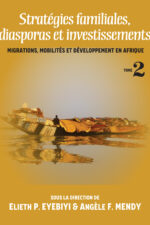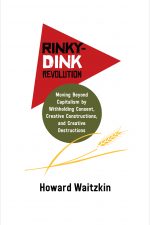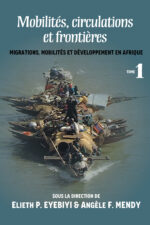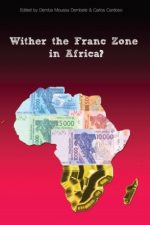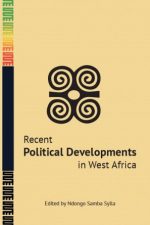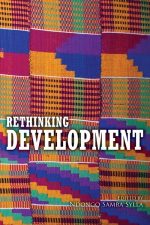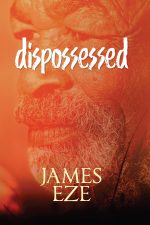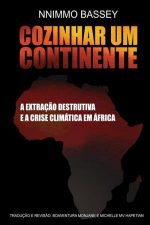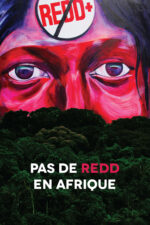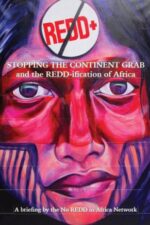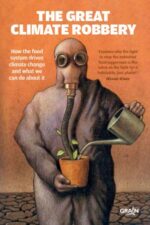-
Cradles
Valiani has written a beautiful and insightful book of poetry about the birthplace of humanity; ‘the cradle of civilization’, Africa. The poems are gathered into four sections: “Womb”; “Land(s)”; “Tides”; “Wind”. Each section is prefaced by philosophy, findings and artifacts of “Maropeng” which becomes both subject and predicate for this soothing poetry: a lullaby for the soul’s remembering. Candice James Poet Laureate Emerita of New Westminster
Cradles is a collection poems on the nature(s) and nurturing that cradle us. They are divided into four parts: Womb is the first cradle, both ‘nature’ and ‘nurture’, under-acknowledged and often unmentioned. Beyond the physical womb of individuals, there are collective wombs that incubate on yet grander and greater scales. Land(s) are the cradles we typically identify as our ‘origins’, but as the Cradle of Humankind teaches, the many lands of today are interlaced in many concealed ways and originated in a single, little understood place. Tides are the many migrations and cycles of time that shape us. They can shift, upset and remake the nurturing of cradles; but also cradle us in cycles of wreckage. Wind sets us free of places and times of origin. This detachment can bring freedom, a sense of loss/lostness, and the many things in between. The freedom/loss/lostness spiral whirls with the wind and transforms. In surrendering to it we can alter its pace to our needs and desires.
-
Wither the Franc Zone in Africa?
Edited by Demba Moussa Dembele and Carlos Cardoso
This book is based on a conference held in October 2012, African Countries and the Franc Zone: Remaining in the Trap or Opting for Monetary Independence. It reviews the global context, characterized by the systemic crisis of capitalism and the questioning of its legitimacy in several regions of the world, particularly in the global South. It provides an overview the challenges of economic and monetary emancipation; the consequences of the Franc Zone and its implications for the development of African countries, including the analysis of the latter’s economic and social record; and reviews the experiences of countries that gained their monetary sovereignty and the lessons for the creation of a West African currency.
In addition to providing the proceedings of the conference, the book includes essays by Nicolas Agbohou, Sanou Mbaye, Demba Moussa Dembele, Mohamed Ben Omar Ndiaye, Yash Tandon and Lansana Keita.
-
Liberalism and its discontents: Social movements in West Africa
USD $ 25.99The engaging and wide-ranging discussions published here explore contemporary political realities in Africa through a ‘social movement’ lens.
Detailing the nuances of social movement politics in 12 West African countries during the 2010-2013 period, they present a chronicle of the socio-political struggles that have taken place in the region. In so doing, this volume answers key questions related to these movements. What logic drives them? What forms do they take? What has been their political impact? Can we speak of a resurgence of social movements? If so, are these a response to the crisis of ‘representative democracy’? Did they give rise to new forms of expression and democratic participation? What challenges do they bring?
Discontent vis-à-vis liberalism in its political and economic dimensions seems to be the trigger of the numerous popular uprisings and protests that occur in the region. In spite of their ambiguities and limitations, these struggles currently seek to remove a double disconnect: that between citizens and the ‘representatives’ and that between the economy and society, between what capital wants and what the people aspire to.
Ndongo Samba Sylla, the editor of this volume, is a Senegalese economist, programme and research manager at the West Africa Office of the Rosa Luxemburg Foundation. Author of The Fair Trade Scandal. Marketing poverty to benefit the Rich (translated from French by Pluto Press 2014), he is the editor of “Rethinking Development” (Rosa Luxemburg Foundation 2014). His recent research work deals with the history of the word ‘democracy’.
-
Recent Political Developments in West Africa
A compendium focused on political developments in West Africa from 2014 to early 2015. Popular uprisings, regime collapse, armed conflicts, epidemic, and economic emergencies in various States are reviewed. The questions of sovereignty and the future of social movements are central considerations.
-
Rethinking Development
USD $ 22.00Beyond the critique of neo-liberalism, there is therefore a pressing need to reflect about alternatives that will help Africa back out of this dead-end and find its own path. This is the perspective adopted by this book edited by Ndongo Samba Sylla, which compiles contributions of experts on Africa’s development issues. Can democracy help to achieve the changes that Africans aspire to? If yes, under what conditions? Otherwise, what is the alternative?
-
dispossessed: poetry of innocence, transgression and atonement
Dispossessed is a poetic representation of life in three stages through the eyes of a poet. It shows, from the thematic interests of the poet; what he considers the crucial stages in life – Innocence, Transgression and Atonement.
Innocence offers a racy view of the picture gallery of the poet’s life as a child. The sensibilities of the poet shine through the foliage of his mind as he pines for self-definition; seeking open ears for his verses. But it is also a period of apprenticeship as the poet hones his skills for the artistic long journey that is inevitable. Clothed in the innocence of childhood, he learns to talk in metaphors and search for himself in the community of imaginative people. This search lights up the path into the poet’s aesthetic mindscape and the silent questions that keep him awake. Innocence is therefore a thirst for sunlight; a quest for utterance.
The unwary reader is beckoned into the quest through poems that evoke memories of their own childhood and conscript them into the ensuing communal experience. However, the human condition abhors inertia. But for any form of natural or artistic growth to occur, the poet must lose his innocence. So, Innocence and its poems of idyllic childhood soon give way to the unexpected — Transgression. Transgression is the coming of age segment of the collection. The poet discovers love. And slowly, he finds himself taking a dip in a pool of emotion that appears to serve as the ultimate sparkplug for his songs.
In essence, Transgression eases the reader into a rare observatory; from where the poet could be seen falling in and out of love and celebrating one of the most profound experiences known to man. It must be noted that in some instances, the love poems of Transgression are also not what they seem on the surface. In some instances, the poet addresses his troubled relationship with his country through poetry; mirroring his personal frustrations and disappointment in verses that come off as a voice of disenchantment. Caught in the firm grip of emotions, the poet changes like the English weather.
But after waves of emotional whirlwinds in Transgression, the poet faces the next logical step — Atonement. Atonement presents a poet who has undergone the rites of passage and weaned himself of self-doubts. He has washed his hands clean and must settle down to a fireside dinner with the elders. But as it turns out, the poet is not only seeking the ears of his genealogical ancestors and elders; he is also seeking the counsel of serious poets, past and present whose nod he needs to take on the weighty issues of his time. So, he comes with a “fistful of kolanuts” as is customary with his people who supplicate their elders and ancestors with kolanuts. In gaining entry into this conclave of his biological and artistic ancestors, he acquires the aesthetic authority to ask weighty questions about the world around him. He is incensed by what assails his sensibilities; a world that turns a blind eye to injustice and a humanity that needs an open heart surgery.
Atonement could also be seen as the poet’s personal admission that serious poetry ought to speak to the dominant issues of the day; the anxieties and insomnia of the age. He muses about these issues; posing rhetorical questions in about them in some instances.
In the end, dispossessed is one man’s journey that finally assumes all the attributes of a communal voyage. Treading in the imagined interstices between the personal and the communal, dispossessed leads us to a clearing in the woods where our awareness of our world heightens with the turning of every page.
James Eze was born in Enugu, southeast Nigeria, shortly after the Biafran War. He was the pioneer Literary Editor of Sunday Sun. As Head of External Communications at Fidelity Bank, he worked in partnership with the novelist Chimamanda Adichie to begin her popular International Creative Writing Workshop series. He is the curator of Under African Skies which hosts A Flutter in the Woods; a yearly evening of poetry and songs in Awka, Anambra State. He also co-founded The Return to Idoto, a poetry festival in honour of Christopher Okigbo. His poems have appeared in Camouflage: Best of Contemporary Writing from Nigeria.
-
Citizenship, Identity and Belonging in Kenya
This book examines citizenship, identity and belonging in Kenya through an analysis of literature, film, music, and theatre. Reflections on women, statelessness and refugees are central considerations.
-
Cozinhar Um Continente: A Extração Destrutiva e a Crise Climática na África
USD $ 25.99Críticas da obra:
“Uma provocante crítica à extração contemporânea dos recursos (talvez mais adequadamente, “exploração” dos recursos) na África Subsariana. Na sua convincente análise, e em momentos abrasadora, Bassey apresenta uma critica cativante e abrangente da crise social e ambiental que se vive na África” – Chatham House
“De escravos a diamantes e passando pelo petróleo, há muito que os países mais consumistas têm vindo a pilhar a África a seu bel-prazer. Bassey explica muito bem como tudo isso tem vindo a acontecer, frisando bem o que procura a África: Justiça. Leia a obra e junte-se ao apelo de Bassey” – Annie Leonard, autora d´A estória das coisas
“Um livro que explica, de forma perspicaz e eloquente, o que a África pode fazer para travar as novas formas de colonização exacerbadas pelo caos das mudanças climáticas” – Pablo Solon, ex-embaixador da Bolívia nas Nações Unidas
“É uma obra que, a par da forte denúncia que faz da ganância e do saque da riqueza africana, apresenta perspetivas de esperança” – Camilla Toulmin, presidente do Instituto Internacional de Desenvolvimento e Meio Ambiente
“A África e o seu ambiente. Com um estilo refrescante, o autor torna as suas ideias extremamente acessíveis. Um dos mais proeminentes ambientalistas da África, faz uma análise abrangente dos desafios que enfrenta o continente, inspirando as pessoas a agir.” – David Fig, Presidente da Biowatch South Africa e autor do Staking Their Claims
“Para aqueles que ainda estão sépticos dos efeitos das mudanças climáticas, este livro vai deixa-los não apenas incomodados e preocupados, mas também motiva-los a fazer alguma coisa” – Nigerian CompassO nigeriano Nnimmo Bassey é arquiteto, ativista ambiental e escritor. Foi presidente dos Amigos da Terra Internacional (Friends of the Earth International) de 2008 a 2012 e Diretor Executivo da Ação pelos Direitos Ambientais (Environmental Rights Action) durante duas décadas. Em 2009, foi nomeado “Herói do Ambiente” pela revista Time e, em 2010, foi co-vencedor do prestigiado Right Livelihood Award (considerado o Prémio Nobel Alternativo). Em 2012, ganhou o Rafto Prize. É atualmente diretor da Fundação Health of Mother Earth, uma organização ambientalista de reflexão e advocacia.
-
PAS DE REDD EN AFRIQUE
USD $ 10.00La présente publication du Réseau Pas de REDD en Afrique (No REDD in Africa Network) a pour but de démystifier le REDD, les projets de type REDD et toutes leurs variantes, et de montrer ce qu’ils sont vraiment : des mécanismes injustes conçus pour lancer une nouvelle phase de colonisation du continent africain. Les exemples présentés démontrent clairement que le REDD est une escroquerie et que les pollueurs savent qu’il leur permet d’acheter le « droit » de polluer.
-
Stop the Continent Grab and the REDD-ification of Africa
So-called Reducing Emissions from Deforestation and Forest Degradation (REDD) is emerging as a new form of colonialism and economic subjugation. This book shows how these unjust mechanisms were designed to usher in a new phase of colonization through an invasion of genetically modified crops and trees which threatens to take over entire ecosystems.

